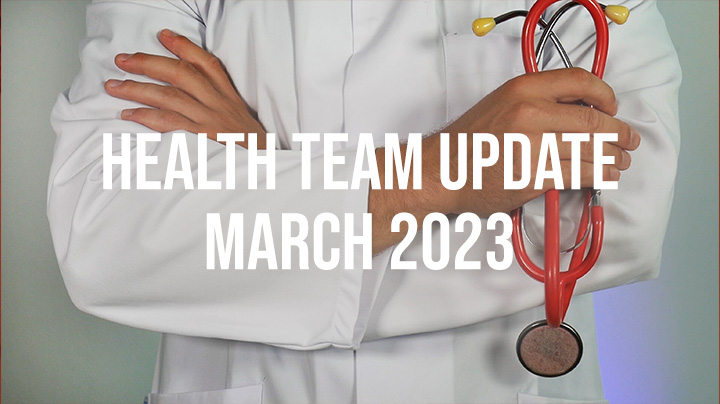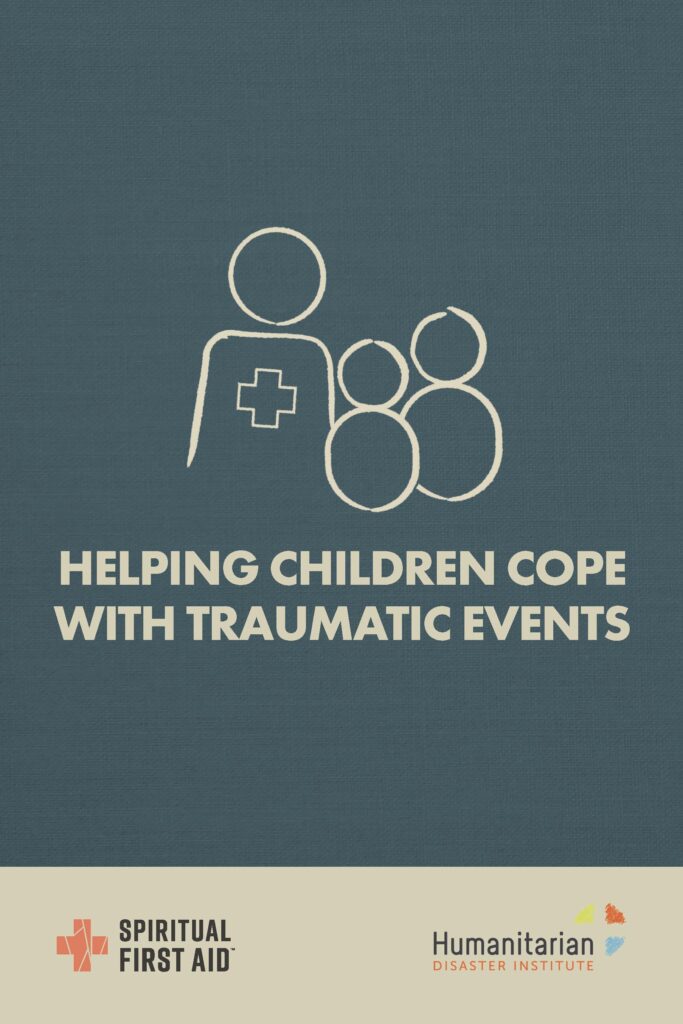Our Conference Health Team continues to work to share information that promotes the well-being of individuals, churches, and communities across our connection. Read their latest updates below.
Helping Children Cope with Trauma
Are there children in your family, church, or community who are in distress? Helping Children Cope with Traumatic Events was developed in response to the Sandy Hook Elementary School tragedy.
This free downloadable booklet provides practical guidance for anyone who wants to support children in the wake of trauma. Helping Children Cope with Traumatic Events provides readers with an overview of common reactions to violent acts and gives concrete steps for caring for children’s emotional and spiritual needs.
We pray that it will equip you to serve the children in your circles with confidence and compassion.
Medicaid Expansion
The NC State House recently passed Bill 76, Access to Healthcare Options, which could create a pathway for hundreds of thousands of low-income North Carolinians to receive health coverage. The potential recipients are largely low-income workers who earn too much to qualify for the program as it is currently structured. But if North Carolina pulled down federal dollars that other states do, they could qualify and be added to the Medicaid rolls.
The program, as is, mostly covers children from families with low incomes, some of their parents, some people with disabilities, and seniors with limited financial means. For many low-income workers, health insurance can be out of reach because they earn too little to qualify for subsidies available through the federal health insurance online marketplace.
Rep. Donny Lambeth, the Republican from Winston-Salem who is the primary sponsor of the bill, said it’s time for North Carolina to get off the list of 12 states that have not adopted Medicaid expansion. The issue has been a political flashpoint in North Carolina since the General Assembly voted in 2013 to reject the portion of the Affordable Care Act that makes expansion possible.
“North Carolina would become the 39th state,” Lambeth told the House Health Committee Tuesday morning. “We’ve learned from other states, we had hearings in this room that brought in a number of other states.”
After just 18 minutes, with little discussion, the House bill passed the health committee with only a handful of opposing votes. A similar scene unfolded in a House finance committee in the afternoon, where the entire discussion took less than 15 minutes, with no opposing votes. Medicaid expansion — after a 10-year wait — seemed to pass quickly through the state House of Representatives.
That meant that the bill would move on from there to the NC Senate for approval. Last week, Senate Leader Phil Berger said his chamber will modify the Medicaid expansion bill that passed the House last month and pass it in the coming weeks. “We will move with all deliberate speed to move this forward,” Berger said. The expansion wouldn’t take effect until this year’s budget is approved, likely this summer.
“Expanding Medicaid is a big deal for North Carolina and the more than half a million people it would help,” House Democratic Leader Robert Reives said in a statement. “It would increase access to care and help rural hospitals stay open. This is long overdue, but we still have work to do so that ensure this deal allows us to fully access federal funds.”
The bill would also add North Carolina to another federal healthcare funding program called the Healthcare Access and Stabilization Program (HASP). Between HASP, which sends funding directly to health care providers, and a federal “signing bonus” for new Medicaid expansion states, the N.C. Department of Health and Human Services says the state will get $8 billion annually “with no additional cost to the state, along with $1.8 billion which can support behavioral health, public safety support, rural health care, and other needs.”
The pressing need for Medicaid expansion is made more urgent by the ending of the Public Health Emergency on May 11th. In exchange for additional federal funds, states agreed not to dis-enroll Medicaid patients. That means that when the Public Health Emergency, 5-8 million people nationally will lose health coverage through Medicaid. It means in North Carolina if Medicaid expansion is not enacted, North Carolina Health & Human Services expects that 37,000 North Carolinians will lose health coverage through Medicaid.
The expansion, if it takes place, will be several months from now, and as part of a comprehensive state budget bill. The budget is a two-year spending plan but also contains major policy. The earliest that this approval could come is early April, but more likely, the state budget will be approved this summer, closer to the end of the current fiscal year, on June 30th.
What can you do? You can educate yourself on and continue to advocate for Medicaid expansion until it is passed into North Carolina law with the passage of the NC budget. You can help ensure that Medicaid expansion is not removed from the budget during upcoming budget negotiations. Keep advocating for Medicaid expansion until it is signed into law! Medicaid expansion would mean that if accepted by the state of North Carolina that 90% of the cost would be paid for by the federal government. Learn more at www.care4carolina.com.
COVID Update
In a recent conversation with Dr. Wes Wallace, adjunct professor in emergency medicine at the UNC School of Medicine, Chapel Hill, NC, he stressed that seniors were the group currently most affected by the COVID pandemic. The good news is that new cases of COVID and hospitalizations are at their lowest since October. Hospitalizations are a particularly helpful indicator to determine the effect of COVID on a community.
The bad news is that COVID is the third leading cause of death among Americans, preceded only by heart disease and cancer. It is having the largest impact on the senior community, even those who have been vaccinated. 18 to 29-year-olds are the largest age demographic of Americans who are likely to contract COVID. If you compare that groups outcome compared to other age demographics who contract the disease, 65-74-year-olds are 60x more likely to die than 18-29-year-olds from the disease, 75-85 year-olds are 140x more likely to die than 18-29-year-olds from the disease, and 85+ are 350x more likely to die than 18-29-year-olds from the disease. These are the statistics despite the fact that Americans 65+ are more likely to have received a vaccination for COVID.
Does that mean the vaccination is not helping prevent people from contracting COVID or preventing death from COVID? No. It does mean that we need to work as congregations to protect our seniors who have been most marginalized by this disease.
You can protect yourself from COVID by:
- Wearing a mask to protect yourself and other members of your community.
- Getting an updated bivalent booster for COVID (To find COVID-19 vaccine locations near you: search vaccines.gov, text your ZIP code to 438829, or call 1-800-232-0233).
- If you contract COVID and are over 50 or have a pre-existing condition, request a prescription of Paxlovid from your healthcare provider (this prescription is most effective in the early days of the disease).
- Ventilation in your church spaces! You can invest in an air handling system for your church. Even just opening a door or window will greatly improve the air quality of your setting.


